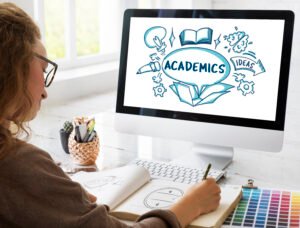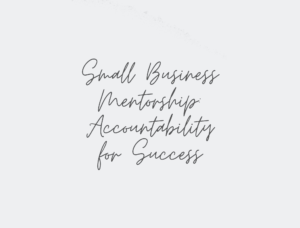Introduction
Learning new things not only helps your job but also improves your personal life. This blog will discuss effective strategies for skill development to help you learn more and improve your skills.
You will learn how to figure out your learning style, set clear goals, use effective learning strategies, make the most of technology, solve learning problems, and create a good learning setting.
Read more about types of career growth.
Understanding Learning Style
Different Learning Styles
Learning styles are how different people like to take in and process knowledge. There are various ways to learn, such as:
Visual Learners: Visuals, graphs, and charts are preferred for comprehending information.
Auditory Learners: The best way to learn is to listen to audiobooks, lectures, and conversations.
Kinesthetic Learners: Prefer a hands-on approach and find experiments and physical activity that help learn the most.
Reading/Writing Learners: Tasks like reading and writing help you learn.
Self-Assessment
Figuring out how you learn best can make your learning a lot more effective. Here are some ideas to help you figure out how you learn best:
- Reflect on past learning experiences: Think about the ways that helped you learn and remember things the most.
- Try a simple quiz: Some online tests, like the VARK questionnaire, can help you figure out how you learn best.
- Observe your preferences: Pay attention to whether you learn best by reading or listening to directions.
Tailoring Your Approach
Once you know how you learn best, you can change the way you do your lessons to fit your needs:
- Visual Learners: Use charts, graphs, and mind maps to help you understand. Colors and pictures should be used in your notes.
- Auditory Learners: Take part in conversations, listen to podcasts, and repeat things out loud. You can record lessons and then play them back later.
- Kinesthetic Learners: Do experiments, role-playing, and other hands-on tasks. To understand abstract ideas, use real-world things.
- Reading/Writing Learners: Make lists, write down thorough notes, and write summaries. Read a lot and use literature as your main source of information.
Understanding and using your learning style can make skill development more fun and successful. Aligning your study methods with your natural preferences can maximize learning and help you reach your goals.
Set Clear and Achievable Goals
Setting goals is essential to skill development. Goals guide and motivate you to prioritize what is important. Losing track of progress and being overwhelmed is simple without defined goals. Goals guide your learning and keep you on target.
SMART Goals
Use the SMART guidelines to make good goals:
- Specific: Make your goal very clear. You shouldn’t just say, “I want to learn a new language,” you should say, “which language?”
- Measurable: Make sure you can measure your goal. Say, “I want to be able to hold a basic conversation in French.”
- Achievable: Make a goal that you can reach. Think about what you already know and the tools you have access to.
- Relevant: Ensure your aim matches your personal or professional goals. Learning French may be useful for visiting France or dealing with French-speaking clientele.
- Time-bound: Give yourself a due date for your goal. This helps you stay focused and gives you a sense of its importance.
Action Plan
To set and reach your learning goals, follow these steps:
- Define Your Goal: Set a clear goal at the start. Like “I want to learn how to play the guitar.”
- Break It Down: Break up the main goal into smaller jobs that you can handle. Like “Learn basic chords,” “Practice strumming patterns,” plus “Learn a simple song.”
- Set Deadlines: Give each job a due date. This holds you responsible and makes sure you keep making progress. “Learn the basics of chords by the end of the first month.”
- Create a Schedule: Set aside time every day or week to practice. To improve your skills, you need to be consistent. For instance, “Every day, play the guitar for 30 minutes.”
- Track Progress: Review your work often. If you need to, change your plan to stay on track. To stay inspired, celebrate small wins.
- Seek Feedback: Find out what teachers or other students think. Criticism that helps you get better and keep going can help you stay inspired.
- Stay Flexible: Be ready to change your plan if something goes wrong. Being flexible helps you deal with problems without losing sight of your goal.
You can improve your skill development by creating SMART goals and implementing an organized action plan. This method keeps you engaged and makes regular, demonstrable progress toward your learning goals.
Effective Learning Techniques
Active Learning
Discuss, problem-solve, and teach. This requires active learning, critical thinking, and improving comprehension and retention. Peer teaching, group discussions, and hands-on activities are used.
Spaced Repetition
Avoid cramming by reviewing knowledge at increasing intervals. It aids in long-term retention. Review content with flashcards or Anki before forgetting it to improve memory.
Practice and Application
Apply your knowledge in practice. Regular practice improves learning and confidence. Practice speaking a new language with native speakers or playing a musical instrument.
Interleaved Practice
Mix subjects or skills in one study session. This enhances problem-solving and adaptability. For instance, combine algebra, geometry, and calculus issues.
Elaboration
Explain new material in your terms and relate it to your knowledge. This enhances comprehension and retention. Summarize or teach ideas.
Retrieval Practice
Instead of reviewing, actively recollect knowledge. Self-quizzing, flashcards, and practice tests increase memory and retention.
Dual Coding
Improve learning with verbal and visual information. Use diagrams or mind maps with textual notes to boost visual and verbal memory.
Mnemonics
Utilize acronyms, rhymes, and visuals to remember information. Remember the planets with “My Very Educated Mother Just Served Us Noodles.”
Chunking
Divide big data sets. Complex knowledge is simpler to understand and remember. Break large numbers into smaller chunks to memorize.
Self-Explanation
Explain your answer or concept’s effectiveness. This enhances comprehension and identifies gaps. Explain your solution to yourself or others.
Active learning, spaced repetition, practice and application, interleaved practice, elaboration, retrieval practice, dual coding, mnemonics, chunking, and self-explanation can help you learn faster and reach your skill development goals.
Leveraging Technology for Learning
Online Courses and Platforms
Online learning platforms’ wide range of courses has transformed education. Some popular platforms:
- Coursera: Provides premier university and company courses. Courses cover data science, business, and personal growth.
- Udemy: Udemy offers classes for beginners and programming, photography, and design experts.
- edX: Offers Harvard and MIT courses. Computer science, art, and design are taught.
- LinkedIn Learning: Offers business, technological, and creative skills courses for professional growth.
Educational Apps
Mobile apps can make learning easier and more fun. These tools are helpful:
- Duolingo: The app is fun and feels like a game. It works for all skill levels and covers many languages.
- Codecademy: Provides hands-on code lessons in Python, JavaScript, and HTML/CSS, among others.
- Khan Academy: It has learning materials on many different topics and can also be downloaded as an app.
- Memrise: Spaced repeats and mnemonics are used to help people learn languages.
- Quizlet: Users can make and study flashcards, which are great for remembering words and facts.
Virtual Communities
Joining online study groups and boards can help you learn more by giving you support and more resources:
- Reddit: For help, tools, and tips, subreddits like r/learnprogramming, r/languagelearning, and r/edtech are great.
- Discord: Many groups of educators use Discord to let their members talk about topics, share tools, and study together.
- Facebook Groups: Join groups in your field where you can talk to workers and people studying the same thing.
- Stack Exchange: A group of question-and-answer websites that cover a wide range of subjects, from computer programs to photography.
- Meetup: You can meet people who want to learn with you by joining study groups or going to educational events in person or online.
Online courses, educational apps, and virtual communities can help you learn, build skills, and meet like-minded people. Technology offers many resources to enhance your study.
Overcoming Learning Obstacles
Common Challenges
Procrastination, lack of desire, distractions, time management challenges, and self-doubt can hinder learning. Facing failure or losing interest can cause procrastination, while distractions like noise and stress can be internal or external. Doubt can lower confidence and effort, hindering progress.
Solutions and Tips
These obstacles necessitate effective solutions. Time management methods like the Pomodoro Technique can help you focus and work. Finding your motivation and setting goals might motivate you to study. Focus can be improved by dedicating a study location and employing technology intelligently. Rewarding oneself for little wins might also keep you going.
Mindset and Attitude
Having a growth attitude helps you overcome challenges. Persistence is encouraged by the belief that hard work might improve abilities. Being enthusiastic about learning and seeing problems as chances for growth can make a big impact. Self-compassion and accepting mistakes as part of learning help keep you resilient and driven.
You can overcome learning difficulties by identifying prevalent issues and applying effective solutions. A growth mentality and a positive outlook will help you build skills and progress.
Creating a Supportive Learning Environment
Physical Space
Productivity depends on a distraction-free home learning environment. Consider a calm, distraction-free location. Provide good lighting and comfy chairs and desks. Keep your study tidy. Personalize your space with inspiring quotations or things.
Social Support
Friends, family, and mentors help learners. They can motivate, advise, and hold you accountable. Discuss your learning goals and ask for help. Study groups and learning communities can provide social support and improve learning through collaboration and shared resources.
Balancing Life and Learning
Time management and prioritization are needed to balance job, life, and education. Schedule study periods while balancing a career and personal life. Plan with flexibility and realistic goals. Take breaks and relieve stress with hobbies. Balance keeps you motivated and minimizes burnout.
You need to optimize your physical space, use social support, and balance your life to create a supportive learning environment. These methods can boost your learning and skill development.
Conclusion
Creating a supportive learning environment involves optimizing your physical space, leveraging social support, and balancing various aspects of your life. By setting up an effective study area, engaging with friends and mentors, and managing your time wisely, you can enhance your ability to learn effectively. These strategies, combined with a positive attitude and growth mindset, will help you unlock your full learning potential and achieve your skill development goals. Embrace these techniques and watch as your ability to learn and grow transforms your personal and professional life.





